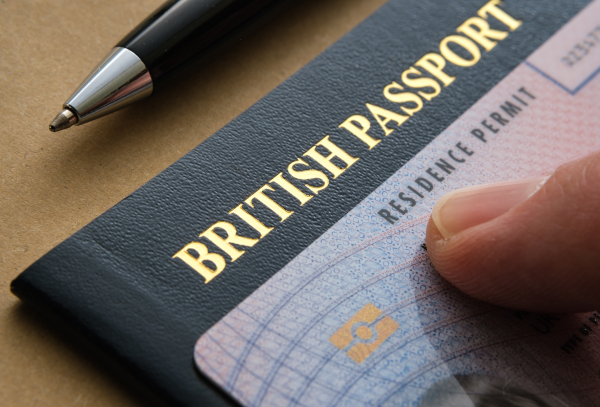Late Settled Status applications under the EUSS Settled scheme for holders of the Permanent Residence (Blue Card)
Following Brexit, the Home Office introduced the EUSS Settlement scheme under which all EEA nationals (and their non-EEA national family members) were required to make an application to regularise their status in the UK. This also included those who already had been issued with the ‘Blue Card’ from the Home Office.
The Blue Card was a document which the Home Office issued under the previous EEA Regulations to those who were granted permanent residence. The permanent residence was granted based on the Applicant exercising their treaty rights in the UK for a period of at least 5 years. Those with the Blue card were then able to make an application to Naturalise as British citizens.
Permanent Residence post Brexit
Permanent residence automatically stopped being valid from 1 July 2021, meaning that all those who held permanent residence under the old EEA system had to make an application for settled status under the new EUSS Settlement Scheme by 30 June 2021. The significance of ‘30 June 2021’ cannot be understated because it meant that that technically, anyone who had failed apply to make their settled status application by that date were now without any form of valid status in the UK. This is even though they had previously been issued with a document (the Blue Card) certifying their right to reside in the UK permanently.
Any application made for settled status after 30 June 2021 was considered ‘out of time’ and the Applicant had to provide reasonable grounds for making the application late. The Home Office’s approach to these ‘out of time’ applications was initially quite generous and a lot of them were granted without any issue where the Applicant met all the other requirements for settled status.
A change in the Home Office’s approach
In August 2023, the Home Office drastically changed their approach to ‘out of time’ applications by making the requirement for an application to be made by the ‘required date’ a validity issue. This meant that where someone made an application ‘out of time’, the Home Office would only go on to consider the substantive application if they felt that there were reasonable grounds for making the application late. The Home Office’s willingness to accept what constituted ‘reasonable grounds’ also took on a more rigorous approach. The Home were no longer willing to accept the following reasons:
- That the Applicant was unaware of the requirement to apply for the EU Settlement Scheme by the deadline
- That they had no access to the internet, or had limited computer literacy or English language skills
- That they were hampered in accessing support available to them because of Covid-19 restrictions
- That they had overlooked the need to apply before the deadline in light of personal circumstances, such as work or study commitments
As a result where the Home Office determines that an Applicant has not been able to establish ‘reasonable grounds’, their application is rejected at the first hurdle. The difficulty with the application being rejected as invalid is that it will normally not have a right of appeal and therefore the only remedy in this circumstance would be a Judicial Review or a fresh application.
Another policy update
As one can imagine, the harsher approach adopted by the Home left a lot of people in the lurch, especially those who had been settled in the UK for years and had obtained permanent residence.
Our experience from a number of individuals contacting us was that they were receiving shockingly harsh decisions from the Home Office to reject out of time applications as invalid. This included individuals who did not realise they had to apply as they held a permanent residence document, had British children, had lived in the UK for more than 15 years, and had been travelling in and out of the UK without being told that their permanent residence document was no longer valid.
In light of pressure on the Home Office from various quarters, on 16 January 2024, they updated their policy and softened their approach a little. The Home Office agreed that they will consider information and evidence an Applicant submits to demonstrate that they had a reasonable belief that they did not need to apply earlier to the EUSS Settlement Scheme or a reasonable basis for being unaware that they needed to apply. The sort of relevant factors the Home Office will consider may include:
- That the Applicant is a first time applicant to the EUSS Settlement Scheme with a residence document issued under the EEA Regulations (such as the Blue Card);
- Had a EEA national partner who had applied to the scheme in-time but they had believed that they could rely on a residence document issued under the EEA Regulations;
- Has a compliant positive immigration history;
- Has received incorrect advice from an employer or landlord since the end of the grace period on 30 June 2021 as to their right to work or rent in the UK without the EUSS Settlement Scheme Status;
- Has travelled in and out of the UK since 30 June 2021 without being signposted to the scheme.
The Home Office decisions makers are directed to look at each case in light of its particular circumstances and evidence.
Therefore, where someone already holds a Blue Card certifying permanent residence under the old EEA Regulation, they now would have a reasonable chance of being granted settled status. It would be important to frontload the late application with as much evidence as possible to demonstrate why the application was not submitted sooner and the Home Office will consider all of the relevant factors.
Discuss your personal case
Please do feel free to book in a free and no obligations consultation with one of our Immigration experts to discuss your own personal circumstances to determine the prospects of success for your late EUSS Settlement Scheme application.

